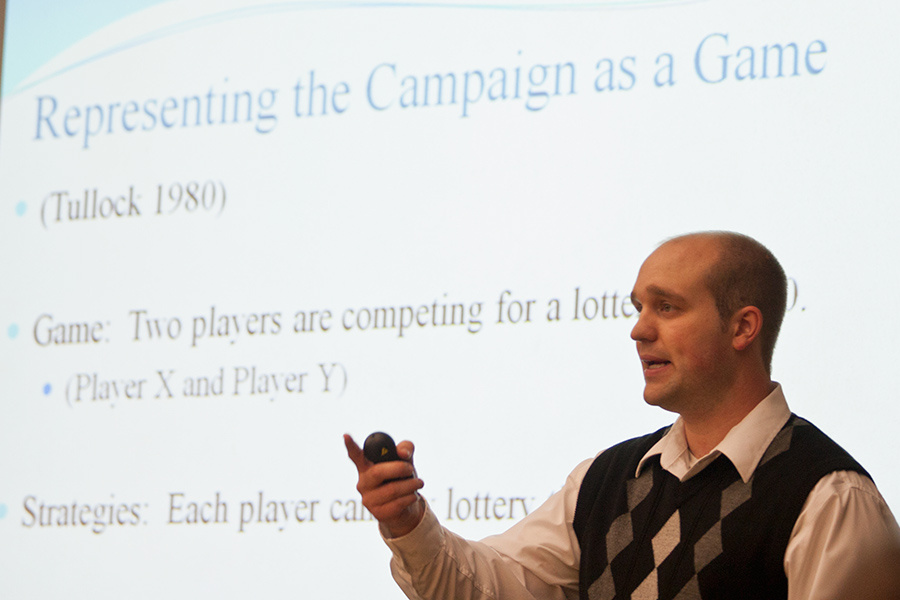

Scholar Speaks on Presidential Campaign Strategy
Do opposing campaigns 'cancel each other out'?
by Rana Tahir '13
Contrary to popular belief, says political scholar Jonathan P. Day, presidential campaigns do not affect election outcomes. Instead, winning an election is all about the more favorable candidate avoiding mistakes.
Day, assistant professor of political science at Western Illinois University, visited the Knox College campus on October 3 to present a lecture, "The Strategy and Effects of Presidential Campaigns," in the Ford Center for Fine Arts. He raised the question, "Do presidential campaigns influence outcomes?"
"Could it be that both campaigns just cancel each other out?" Day asked.
Political forecasting models have predicted presidential outcomes six to 12 months before elections take place, he said, and those predictions usually come within 2 percentage points of the actual numbers.
For example, one forecast predicted Barack Obama would win the 2008 presidential election with 53.0% of the vote as the "more favorable" candidate. Obama actually won with 53.25%.
"So in most cases, we actually know how the presidential election is going to end up before the election even takes place." Day said. "If this is the case, this is strong evidence that the campaigns are actually cancelling each other out."
If opposing candidates are equally skilled at campaigning, the election outcome would be the same as if the candidates hadn't campaigned at all, he added. "But what if someone campaigns better than the other?"
The one election that models did not predict accurately was the 2000 election between Al Gore and George W. Bush. While the models predicted Gore would win, Day said, he lost because of a key mistake -- spending $10 million less for political ads than his opponent did.
According to Day, the main objective for the predicted winner is to avoid missteps.
"So the idea is to try to win, to try to do your best, but in doing that -- really, if you step back from it -- it was: Don't make a mistake," Day said.
Day's lecture was "part of a larger goal to create additional discussion, thought, and enthusiasm for the opportunities for learning about and engaging in issues related to the election," said Andrew Civettini, assistant professor of political science at Knox College. He and a team of faculty members are team-teaching an interdisciplinary course for fall term, Elections 2012.
Day's lecture was hosted by the Elections 2012 class and funded by the Dean of the College.
Published on October 10, 2012

